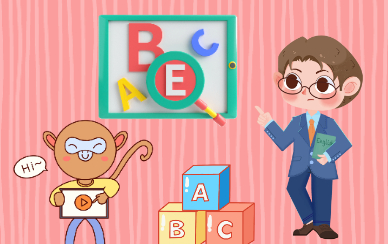发布时间:2022-05-10 18:19:51来源:励普教育综合
雅思作文常用替换词归纳~今天小编为大家带来的主要内容是关于雅思作文常用替换词总结,有一些词出现的频率太高,难免会让人觉得审美疲劳,相应的分数也不会太高,这就需要我们用同义词替换的方式来进行表达,下面和小编一起去看看吧。

雅思作文常用替换词总结:
开始
Begin, start, begin with, spring, start up, set off on, break out, strike up, originate from,;
Initiate, launch, originate, sprout; unfold; unleash,outset, onset, Rudimentary, elementary,
产生,创造
create, produce, bring about, yield, give birth to, bear, bring into being, generate, beget,germinate; Invent, innovate, renovate, plan, design, imagine, conceive, devise, formulate, imagine, envision,
发育,发展
Grow, develop, breed, bring up, nurture, cultivate, hone, raise, foster, (主动)
Develop, advance, progress, move forward, go forward, proceed(自我成长)
Burgeon, flourish, thrive, bloom, blossom, boom, prosper;
结束,停止
stop,finish, be over, cease, discontinue, wind up, bring to an end(close, halt), end,come to an end, end up, terminate,quench,quell,run out, expire, conclude
adjourn/dissolve/lull/subvert,abortaive,
Surcease, cessation,
impasse, deadlock, logjam, stalemate,
Ultimate, final, eventual,
Abeyance, suspend, interruption, brake, halt, pause,
取消,废除
Cancel, annul, call off, do away with,
Abolish, desuetude, disuse, abandon, repeal, revoke, invalidate, rescind, nullify
Obsolete, out of date, outmoded, out of fashion, old-fashioned,
多,增加
Enrich, increase, add to, abound, fill, fill up, replenish, stock up, add, put in, raise,
Accrue, mount up, augment, accumulate, rise
Abundant, plentiful, more than enough, profuse, copious, rich, wealthy, generous, numerous, in great numbers;
有效,起作用
Effective, efficient, effectual, successful, useful, helpful, functional, applicable, operative, working, active, functioning, in operation, in use,
Available, serviceable,
Impact, influence,
减少,降低
Lower, reduce, decrease, drop off, abate, decline, dwarf, dwindle, rarefy, curtail, shorten, abridge, truncate, dock, decline, slump, eclipse, subside, shrink, ebb,
Diminish, lessen, debase, dilute, moderate, die down, grow less intense, cut down, ebb, cut back,
阻碍
Hinder, hamper, check, stunt, impede, block, obstruct, retard, interrupt, hold back, prevent from, forestall, keep from, deter from, discountenance, lumber, thwart, stem, stymie, frustrate, stump, stem,
Entangle, enmesh, ensnare, entrap,
强调
still, Indeed, apparently, oddly enough, of course, after all, significantly, interestingly, also, above all, surely, certainly, undoubtedly, in any case, anyway, above all, in fact, especially. Obviously, clearly.
比较
like, similarly, likewise, in the same way, in the same manner, equally.
对比
by contrast, on the contrary, while, whereas, on the other hand, unlike, instead, but, conversely, different from, however, nevertheless, otherwise, whereas, unlike, yet, in contrast.
列举
for example, for instance, such as, take …for example. Except (for), to illustrate.
时间
later, next, then, finally, at last, eventually, meanwhile, from now on, at the same time, for the time being, in the end, immediately, in the meantime, in the meanwhile, recently, soon, now and then, during, nowadays, since, lately, as soon as, afterwards, temporarily, earlier, now, after a while. first, second, third, then, finally, to begin with, first of all, in the first place, last, next, above all, last but not the least, first and most important.
可能
presumably, probably, perhaps.
解释
in other words, in fact, as a matter of fact, that is, namely, in simpler terms.
递进
What is more, in addition, and, besides, also, furthermore, too, moreover, furthermore, as well as, additionally, again.
让步
although, after all, in spite of…, despite, even if, even though, though, admittedly, whatever may happen.
转折
however, rather than, instead of, but, yet, on the other hand, unfortunately. whereas
归还,偿还
Return, hand out, restore, reciprocate, remunerate, revert,
Compensate, reimburse, indemnify, expiate, atonement,
Salary, remuneration, Emolument, honorarium
需要,
Require, call for, need, demand, necessitate,
Necessary, required, requisite, essential,
Requisite, prerequisite, requirement, precondition,
刺激, 激发,鼓励
Stimulate, activate, spur, incite, agitate, inspire, arouse, excite, provoke, actuate, incite, foment, stir up, trigger, Kindle, enkindle, ignite
encourage, motivate, invigorate, prompt, instigate,
Impetuous, impulsive;
欲望,欲求
Wish, want, desire, long, yearn, aspire, crave, hanker, covet:
Desirous, eager, avid, greedy, acquisitive, much desired, coveted, ambitious, enterprising;
Longing, aspiration, yearning, ambition, avarice, desire for, appetite, desire
感觉,察觉
Sense, feel, savor, be conscious of, be aware of, regain consciousness, perceive, Cognize, regard,
Detect, identify, notice, recognize, observe,
Heed, pay/give heed to, take heed/notice of, notice, pay/give attention to
清楚
clarify, elucidate, shed light on, illuminate, make clear
explicit, overt, precise, unambiguous, plain, clear, unequivocal,
clarity, clearness, lucidity, transparency, simplicity, precision.
合作,合并
Work together, cooperate, come together, and collaborate, join forces, team up,
Merge, unite, connect, bond, bring together, combine, associate, amalgamate, swallow up, become one, come together, Affiliate, annex, coalesce, incorporate, integrate, put together, join together.
整体,全部,广义
Complete, total, entire, full, whole, thorough, comprehensive, all-round, versatile, plenary
Generally, entirely, fully, wholly, thoroughly, exhaustively, usually, largely, mainly, mostly, for the most part, on the whole, in genera
手段,工具
By means of, by way of, by virtue of , method, manner, means, device, instrument, facility, implement, apparatus, appliance, mechanism, gadget, utensil, tools,
contrivance, maneuver, tactic, mean, expedient, stratagem, tact, ploy,
雅思技巧:雅思写作之英汉写作差异举例
一、英语多引申,汉语多推理
英语有两句俗话:一是You know a word by the company it keeps.(要知义怎样,关键看词伙),二是Words do not have meaning, but people have meaning for them.(词本无义,义随人生)。这说明词典对词的定义和解释是死的,而实际运用中的语言是活的。从原文角度来说,这种活用是词义和用法的引申,翻译的时候要准确理解这种引申,译者就需要进行推理。
例如:While there are almost as many definitions of history as there are historians, modern practice most closely conforms to one that sees history as the attempt to recreate and explain the significant events of the past.
二、英语多被动,汉语多主动
英语比较喜欢用被动语态,科技英语尤其如此。汉语虽然也有"被"、"由"之类的词表示动作是被动的,但这种表达远没有英语的被动语态那么常见,因此,英语中的被动在汉译中往往成了主动。下面我们先看一组常用被动句型的汉译:
It must be pointed out that...必须指出……
It must be admitted that...必须承认……
It is imagined that...人们认为……
It can not be denied that...不可否认……
It will be seen from this that...由此可知……原文中有三个被动语态is imagined, be compared和be required,译成汉语都变成了主动表达:认为、相比和掌握。
有些英语被动需要把主语译成汉语的宾语,这样才能更加符合中文的表达习惯。
例如:New sources of energy must be found, and this will take time, but it is not likely to result in any situation that will ever restore (归还;恢复,复兴;恢复健康,复原)that sense of cheap and plentiful energy we have had in the past time.
译文:必须找到新的能源,这需要时间;而过去我们感觉到的那种能源价廉而充足的情况将不大可能再出现了。
三、英语多变化,汉语多重复
熟悉英语的人都知道,英语表达相同的意思时往往变换表达方式。第一次说"我认为"可以用"I think",第二次再用"I think"显然就很乏味,应该换成"I believe"或"I imagine"之类的表达。相比之下,汉语对变换表达方式的要求没有英语那么高,很多英语中的变化表达译成重复表达就行了。请看下面的例子:
The monkey's most extraordinary accomplishment was learning to operate a tractor. By the age of nine, the monkey had learned to solo on the vehicle.
译文:这只猴子较了不起的成就是学会驾驶拖拉机。到九岁的时候,这只猴子已经学会了单独表演驾驶拖拉机了。tractor和vehicle在句中显然都表示"拖拉机",英语表达上有变化,而译成汉语时使用了重复表达法。
四、英语多抽象,汉语多具体
做翻译实践较多的人都有这样的体会:英文句子难译主要难在结构复杂和表达抽象上。通过分析句子的结构,把长句变短句、从句变分句,结构上的难题往往迎刃而解。表达抽象则要求译者吃透原文的意思、用具体的中文进行表达,这对考生往往具有更大的挑战性。
下面我们先看一组例子:
disintegration 土崩瓦解
ardent (热心的;热情的)loyalty 赤胆忠心
total exhaustion 筋疲力尽
far-sightedness 远见卓识
careful consideration 深思熟虑
perfect harmony (和声;和睦)水乳交融
雅思口语替代good的词有哪些?
选择雅思培训学校时要考虑哪些因素?
雅思一年有几次考试?
雅思口语表示人性格的词汇归纳
雅思作文利弊类写作模板整理
雅思口语part2需要说几分钟?